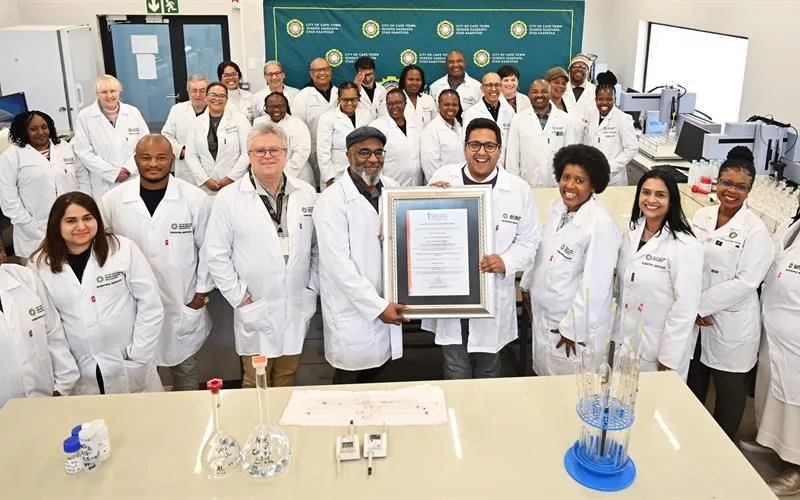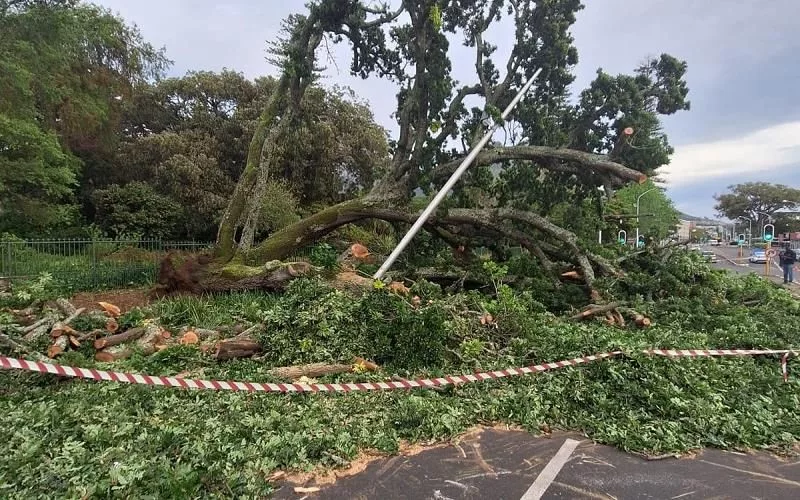Cape Town’s Water and Sanitation’s Scientific Services Branch is responsible for testing water and air quality throughout the city. The facility is equipped with advanced labs and has recently added four new testing methods, broadened its accreditation range, and added supplementary technical signatories, all while preserving its ISO/IEC 17025 accreditation. The branch’s commitment to maintaining the most stringent quality standards, its ongoing compliance with international accreditation standards, and its continuous expansion of test methods and services make it a shining example of excellence in the field of scientific services.
The Unseen Efforts in Protecting Public Health
In the vibrant city of Cape Town, numerous behind-the-scenes services are essential in providing a secure and healthy environment for its inhabitants. One of these critical services is the City’s Water and Sanitation’s Scientific Services Branch. This important division has recently integrated four new testing techniques, broadened its accreditation range, and added supplementary technical signatories, all while preserving its ISO/IEC 17025 accreditation from the South African National Accreditation System (SANAS).
A Pioneering Municipal Laboratory at the Forefront
Cape Town’s Athlone-based Scientific Services branch is a unique municipal laboratory in the country. Furnished with advanced labs, this facility carries out scientific examinations on water samples sourced from a variety of locations, such as rivers, dams, vleis, wastewater, industrial effluents, and drinking water. Furthermore, it monitors air quality throughout the city. During the 2022/2023 fiscal year, Scientific Services gathered and examined over 55,000 samples.
Upholding Quality Standards: The ISO/IEC 17025 Accreditation
The committed team at Scientific Services takes great pride in maintaining the most stringent quality standards, including the ISO/IEC 17025 accreditation. This internationally acclaimed standard is vital for testing and calibration laboratories around the globe to be considered technically proficient. Scientific Services undergoes evaluation every five years, with surveillance assessments every 18 months.
In March 2023, the facility successfully retained its overall ISO/IEC 17025:2017 accreditation during its latest surveillance assessment and extended its accreditation scope, with the addition of seven new technical signatories across the Microbiology, Hydrology, and Chemistry labs.
Recently Added Testing Methods: Extending the Accreditation Range
The recent expansion of the accreditation scope was highlighted by the introduction of four novel test methods, including two in Chemistry and two in Microbiology. These crucial test methods consist of:
- Determination of Fluoride Colorimetric for environmental water, industrial water, drinking water, leachates, swimming pool water, potable water (from dams and treated), and borehole water.
- Determination of Sulphate Turbidimetric for environmental water, industrial water, drinking water, leachates, swimming pool water, potable water (from dams and treated), and borehole water.
- Detection and Enumeration of Total Coliforms and Escherichia coli (Colilert Quanti Tray Method) for drinking water, borehole water, environmental waters (Vleis, Rivers, and Dams), and wastewater.
- Enumeration of Heterotrophic Plate Count (HPC) for drinking water, borehole water, and spring water.
A Ten-Year Journey of Sustaining Accreditation and Expanding Services
Since 2011, the Scientific Services branch has sustained its accreditation, with a gradual increase in test methods over time. Beginning with only three methods, the branch has consistently broadened its capabilities, all while ensuring the quality of its operations.
Mayoral Committee Member for Water and Sanitation, Councillor Zahid Badroodien, praised the accomplishment, stating, “This accreditation signifies the importance of the quality of the work we produce for our residents. It also instills credibility in the analysis we perform, fostering trust in our results.”
The Significance of Scientific Services in Cape Town
While the work conducted by Cape Town’s Scientific Services branch may be unseen, its impact on the city’s inhabitants is substantial. Guaranteeing the safety of water and air quality standards is a vital service that ultimately supports public health and well-being.
As the only municipal laboratory of its kind in the country, the facility’s ongoing compliance with international accreditation standards, along with its continuous expansion of test methods and services, positions it as a shining example of excellence in the field of scientific services.
The city of Cape Town can rest assured knowing that dedicated professionals, state-of-the-art technology, and a commitment to quality are working relentlessly to safeguard the health and safety of its residents.
1. What is Cape Town’s Water and Sanitation’s Scientific Services Branch responsible for?
Cape Town’s Water and Sanitation’s Scientific Services Branch is responsible for testing water and air quality throughout the city.
2. What is the significance of the ISO/IEC 17025 accreditation?
The ISO/IEC 17025 accreditation is an internationally acclaimed standard vital for testing and calibration laboratories around the globe to be considered technically proficient.
3. How frequently does Scientific Services undergo evaluation?
Scientific Services undergoes evaluation every five years, with surveillance assessments every 18 months.
4. What new testing methods has Scientific Services added to its accreditation range?
Scientific Services has added four new testing methods, including determination of fluoride colorimetric, determination of sulphate turbidimetric, detection and enumeration of total coliforms and Escherichia coli, and enumeration of heterotrophic plate count.
5. What is the Mayoral Committee Member for Water and Sanitation’s opinion on the accreditation?
Mayoral Committee Member for Water and Sanitation, Councillor Zahid Badroodien, praised the accreditation, stating that it “signifies the importance of the quality of the work we produce for our residents.”
6. How long has the Scientific Services branch sustained its accreditation?
Since 2011, the Scientific Services branch has sustained its accreditation.
7. Why is the work conducted by Scientific Services significant?
The work conducted by Scientific Services is significant because it guarantees the safety of water and air quality standards, ultimately supporting public health and well-being.
8. How does Cape Town’s Scientific Services branch position itself in the field of scientific services?
Cape Town’s Scientific Services branch positions itself as a shining example of excellence in the field of scientific services due to its ongoing compliance with international accreditation standards, continuous expansion of test methods and services, and commitment to quality.








